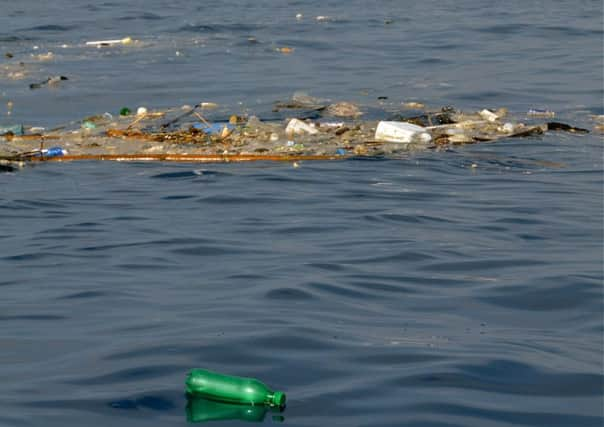NATIONAL: WWF report gives British tourists tips on reducing plastic when holidaying in Mediterranean


Around 95 per cent of the waste in the open sea, on the seabed and on beaches across the region is plastic, with the majority coming from Turkey and Spain, followed by Italy, Egypt and France, the study by wildlife charity WWF said.
The Mediterranean is one of the seas with the highest levels of plastic pollution in the world, with hundreds of thousands of tonnes of plastic items and tiny ‘microplastics’ ending up in it each year and harming wildlife.
Advertisement
Hide AdAdvertisement
Hide AdMore than 200 million tourists visit the Mediterranean each year, including millions of Britons, causing the 40 per cent increase in marine litter during summer, according to the report released to mark World Oceans Day.
The conservation charity is calling on holidaymakers to look at cutting down on single use plastics including straws and stirrers, drink tap water where it is safe to do so, and avoid items such as disposable inflatable pool toys.
Other tips for tourists to cut down on plastic include bringing a bag for life on holiday, freshening up with mints instead of gum, using a washable cloth not face wipes, and ensuring they take any rubbish with them off the beach.
Though it contains only one per cent of the world’s water, the Mediterranean is a semi-enclosed sea with lots of human activity and as a result is a ‘plastic trap’ where seven per cent of all the world’s microplastic waste is found, WWF said.
Advertisement
Hide AdAdvertisement
Hide AdThese tiny pieces of plastics can also be eaten by fish or other creatures such as mussels which can then end up on holiday seafood dinner plates.
On average someone eating fish in Europe could be ingesting up to 11,000 pieces of microplastic a year, the report warned.
Tanya Steele, chief executive at WWF, said: ‘The Mediterranean is a beautiful holiday destination enjoyed by millions of British people each summer but when we come home with our happy memories, we’re leaving behind a toxic legacy of plastic waste.
‘The birds, fish, and turtles of the Mediterranean are choking on plastic, but our report also shows plastic is ending up in the fish and seafood we eat on holiday.
‘That’s why we’re asking people to think about how they can cut down on the amount of single-use plastic they use and throw away on holiday.’